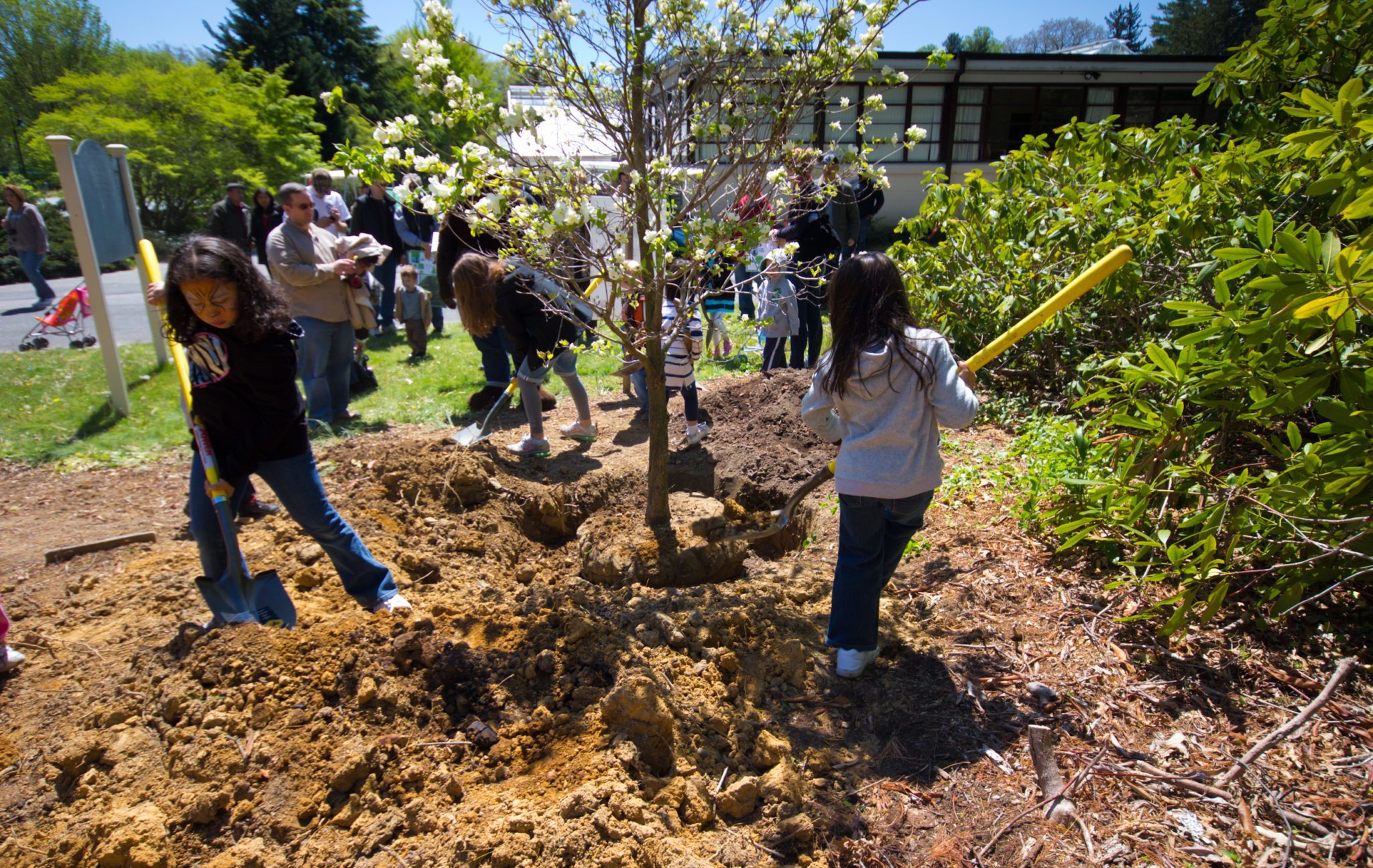Don’t Forget Arbor Day

The promise of fertile land and new opportunity drew thousands of Americans westward in the 1800s. As these pioneers put down roots in what we now call the heartland, they found themselves missing one thing: trees. The tradition this need gave birth to is worth remembering today.
While the Great Plains were beautiful in their own right, the pioneers realized that the trees they had lived among on the East Coast offered many aesthetic and practical benefits. Groves of trees provided shade from the sun, shelter from the wind, and protection from soil degradation. That’s why in 1872, J. Sterling Morton, a newspaper editor in Nebraska, led a campaign to create a tree-planting contest. He called it Arbor Day.
On April 10 of that year, it is estimated that Nebraskans planted more than one million trees in celebration of the first Arbor Day. Now, Arbor Day is a national holiday that is even celebrated internationally, with tree-planting events taking place all over the world. The Arbor Day Foundation estimates that it has distributed nearly 500 million trees since its beginning 50 years ago.
The lesser-known sibling of Earth Day, Arbor Day is still nationally celebrated on the last Friday of every April. Communities across America spend the day planting trees and educating citizens about the importance of trees for human flourishing. Trees have long connected us with nature regardless of where we live: providing food, shelter, and the materials to construct our lives.
Yet, in America today, a nation with few frontiers or pioneers to explore them, it feels as though we have lost the spirit that inspired Arbor Day. We now take the simple beauty of trees for granted.
Today, we say we care about the environment, but the environment we care about is abstract and global. It’s no surprise that Earth Day, a product of the revolutionary fervor of the 1970s, has supplanted Arbor Day. A Hallmark holiday has replaced a celebration of beauty and hard work. As a result, environmentalism has become commercialized. It is a performative act, produced and packaged for global distribution via social media. Now, we block traffic to fight pollution.
The great tragedy of the uprooted environmental movement is that it has left us unprepared to solve the great environmental problem of today: climate change. Young Americans are anxious, angry, and have been left feeling powerless in the face of this global puzzle. They have been told the challenge is too big and they are too small. Yet, the spirit of Arbor Day, the simple power of planting a tree, offers a solution.
A single tree can sequester one ton of carbon dioxide over its lifetime. Planting one trillion trees could sequester one-third of all human produced greenhouse gas emissions. Even more importantly, planting a tree gives the abstract global challenge of climate change a local solution.
At its core, this is what Arbor Day is about. Earth Day was fashioned by activists; Arbor Day was born from a love of nature and a desire to grow something useful and beautiful for future generations. One man’s love of trees inspired thousands of people to plant millions of trees. Instead of sawing off the branch it rests on, contemporary environmentalism should be rooted in this proud history. Rather than marching in the streets, climate activists should be getting their hands dirty.
America was a much different nation when J. Sterling Morton established Arbor Day 150 years ago. Yet, while Morton did not face the threat of a changing climate or the tragedy of a dwindling Amazon rainforest, he understood an essential truth: Everyone has a sacred obligation to act as environmental stewards. Today, we should remember taking a simple action, even planting one tree, will help future generations flourish.
Quill Robinson is the vice president of advocacy at the American Conservation Coalition (ACC).
Comments